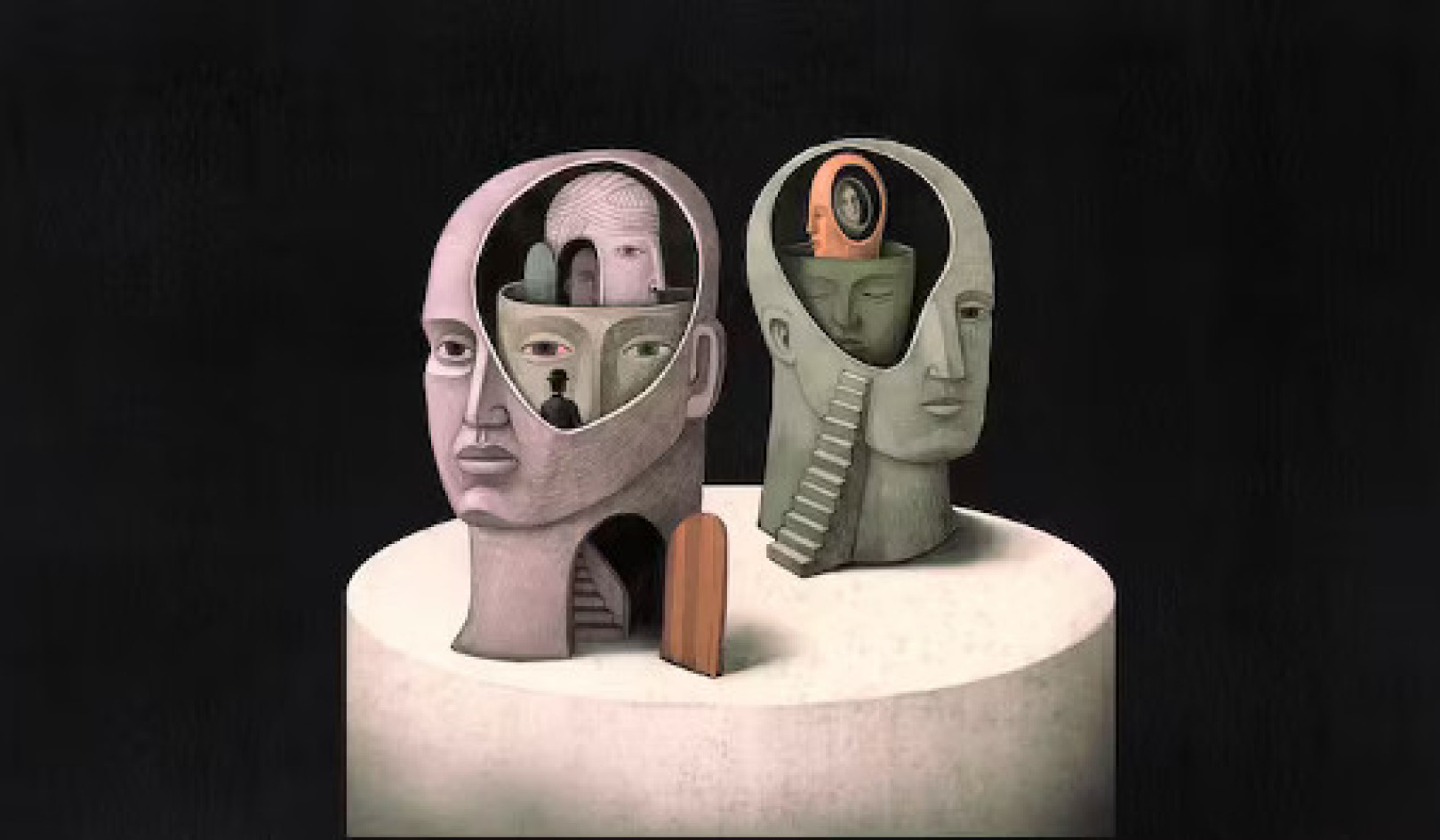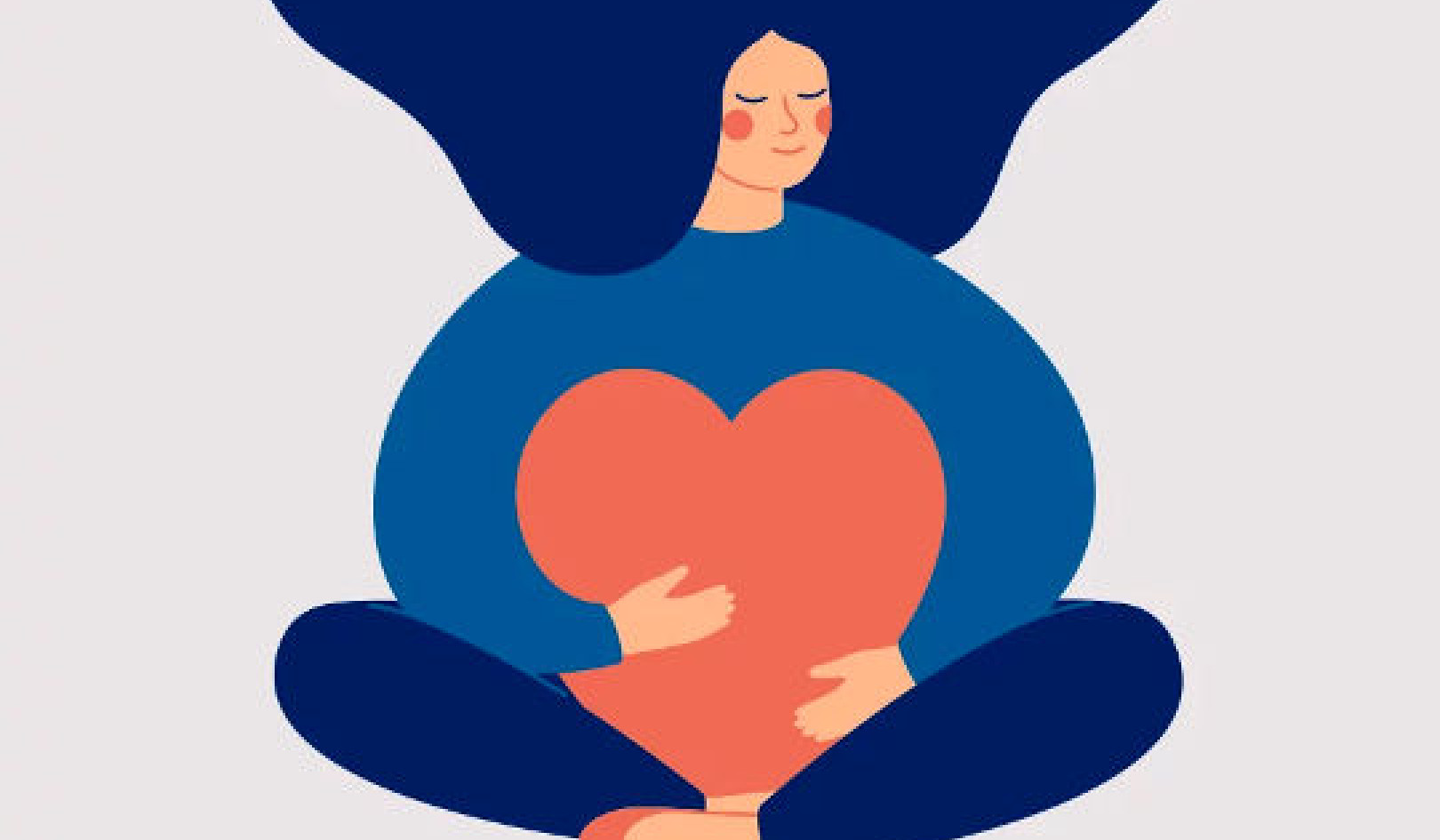
Each day, we all face a peculiar problem.
We must validate our past,
face our present, plan for the future.
-- Deng Ming-Dao, 365 Tao Daily Meditations
Acceptance is the hallmark of many Eastern teachings, including Taoism, from which Tai Chi originates. To let tension go without effort, become aware of the tension and accept it. This is an example of wu-wei Tai Chi, or doing by not doing.
Author Melodie Beattie says, "Acceptance is the magic that makes change possible." You are able to make the space for change if you accept and validate what is.
Dr. Stephen T Chang, author of The Integral Management of Tao, says,
One hundred percent perfection does not exist in the real world. The best one can do is hope to come close to it. Perfection is either in the past or in the future or in the dream world. Because inside yang there must be yin -- nothing is absolute. Nothing, for example, is absolutely good or bad. Therefore tolerance is a necessary strategy.
THE OPPOSITE OF ACCEPTANCE
The opposite of acceptance and validation is judgment and denial, which make us tense up, lose our center, criticize ourselves and others, and hold impossible standards for everyone. When we are being judgmental, we invalidate ourselves and others. We deny what we feel, tell others what they feel or should feel, and consciously or unconsciously try to make others feel small and inadequate.
It is easy to accept in another person the qualities you like, or that you share. It is easy to focus on what you have in common. For both ourselves and our children, the test of our ability to accept and validate comes when differences arise. If we try to push our children to be more like us, to like the things we like, to dislike the things we dislike, and to, in essence, be little carbon copies of us, we are not in harmony.
As a child, you may not have had role models who showed you how to deal with other people's feelings and preferences in healthy, supportive ways. Many of our parents grew up in an era when it was considered "not nice" to show your feelings, and any expression of emotion was uncomfortable. When women cried, they were considered "hysterical". When men cried, they were considered "sissies".
Our parents often used their emotional states to hold us hostage: "You made your father angry" or "Be quiet or you'll upset your mother". So many of us received mixed messages about emotions that we can unconsciously pass along to our children.
Even when they are stated with "I" ownership, our reactions to another person's feelings often tend to be unsupportive. We feel we have to do something about their feelings, and too often we resort to unskillful reactions that make the problem worse and make the feelings bigger. We dismiss, deny, medicate (usually with food or TV), distract, blame, fix, advise, and rescue, when all that is really called for is validation: "Yes, you feel that way. It sounds like you're having a hard time with it."
Denial prevents us from accepting what is actually there, what is happening, and what is missing. As Yoruba spiritual teacher Iyanla Vanzant has said, "By accepting what is, you become keenly aware of what isn't."
ACCEPT YOURSELF, ACCEPT OTHERS
According to yoga philosophy, self-acceptance leads to true contentment. It is not easy in our present world. The images we see every day -- on TV, in magazines, at work, and in the marketplace -- stare back at us with reproach. We can never be beautiful enough, wealthy enough, smart enough, or even happy enough! Acceptance means to recognize something for what it is and realize that all of our experiences are temporary. What you see in the mirror today will not be what you see tomorrow.
Acceptance allows you to handle change in a calmer way, and to work for change when necessary. If people "accept" abuse from their partners and neither party gets help and commits to change, it is not true acceptance. To accept you have hurt or abused someone is to practice humility, and that gives you access to your power to change.
Our relationships are our greatest teachers, so the more intimate and committed a relationship is the more it has to teach us. Even passing acquaintances can help us practice acceptance and thus allow the light of peace to shine within us. An encounter with a police officer, a sales clerk, or a postal worker gives us a chance to bring love, acceptance, and healing to the world. In her wonderful book, One Day My Soul Just Opened Up, Iyanla Vanzant said,
Accept that what is yours will come to you in the right way at just the right moment. Patiently acknowledge and accept that what is not for you is not for you, no matter what you choose to tell yourself.
To accept something about yourself or another person doesn't mean you approve of or agree with it, or that you are not affected by it. Practicing acceptance just helps you make wiser choices and respond in a healthier way. A good example of acceptance can be found by observing your pet, if you have one. Animals accept and love you no matter what. They don't withdraw their love in disapproval of a choice you make. You know they are there for you with all your imperfections.
Acceptance is what we want from that which we perceive to be God. We want God to know us and all our imperfections, and to still love us unconditionally. My spiritual teacher used to say that when you fall down and get dirty, God picks you up, brushes off all the dust, and holds you in his lap, never judging you for falling, even if you do it over and over again. As parents, we want to emulate this paradigm, and, in addition, teach our children how to avoid some of the sinkholes and other pitfalls that may be there to trip them.
Parenting with Acceptance
Many parents think it's their job to correct their kids, to "straighten them out" by pointing out what they do wrong, and what is wrong with them. Though well-intentioned, this type of parenting damages self-esteem when it is not balanced with lots of praise and acknowledgment of the good things the child has said and done and how beautiful and intelligent they are. One study showed that if praise is connected with touch, the child takes it in 85 percent of the time, while if it is only given verbally, the child accepts it only 15 percent of the time.
Negative criticism sticks like glue and your child will remember it long into adulthood -- much longer than the positive things you say, if you say them infrequently. Criticism makes children self-critical and cripples their confidence. It is important to reinforce the positive by a factor of ten over the negative. Reserve "constructive" criticism for short-term situations over which the child has control -- situations that can be changed by choice, and that are outside the personality.
Acceptance in Pregnancy
Accepting that you are pregnant is your first opportunity to use Principle Eleven (Accept & Validate) during your pregnancy. I remember going from joy to numbness to fear to wonder to acceptance, and back again, in those first weeks. Finally accepting we were pregnant allowed my husband and I to begin planning how we wanted our lives to change, what changes we needed to make, and to begin reading up on all our choices.
During both pregnancies, it was a big project. The second time, we had the added stress of a downwardly mobile financial situation, and a two year old who was still nursing, while, at the same time, I was in the midst of writing my first book. So more accommodations, more sacrifices, and different choices had to be made. Every baby, whether it is your first or fifth, is utterly different and each requires a deeper commitment to and understanding of the concept of acceptance.
During pregnancy we imagine and fantasize what our baby will be like. We dream, we wish, we look at every baby on the street and wonder. After our baby is born, we are called upon not only to totally accept our child but to validate who she or he is as a person separate from us. We may delight in discovering Mama's eyes, Daddy's chin, or a hint of Grandmother's cheekbones in our child's face. But we must always validate this being as a separate person.
Acceptance with Young Children
As a parent, your capacity for acceptance and validation is truly tested when so-called problems arise -- when, for example, your baby is premature, has Down Syndrome, a cleft lip, or any of a myriad of differences that you may not have been prepared for. The sooner you can work through your feelings and come to acceptance, the sooner you can begin building a positive bond with your baby. Massage and holding and touching can help you with this.
As you bond, soul to soul, with your baby, you will come to realize, deep within your heart, that your mission on this earth includes showering your child with love, being loved by your child, and allowing your child to teach you some of the deepest lessons you will receive in this life.
As your child grows, he will provide you with endless opportunities to practice acceptance -- as he does exactly the opposite of what you wish or expect! Your challenge, beyond merely accepting the situation, is to continue to validate your child as beautiful, intelligent, and worthy even when he makes mistakes.
One way to do this is by actively exploring the ways in which you and your child are different and accepting and validating those differences. With curiosity, determine which differences bother you, and why. What do you find difficult to accept and validate? We have so many agendas for our children, it is amazing they are, for the most part, so carefree and don't seem to feel the weight of our projections, expectations, wishes, hopes, and fears for them.
Acceptance and Expectations
By accepting your children as they are right now, you can help them grow up feeling secure with lots of self-esteem and healthy personal power. Jean Liedloff, in her groundbreaking work, The Continuum Concept: In Search of Happiness Lost, illustrates this point in her account of the village life of the Yequana people of South America.
I was present at the first moments of one little girl's working life. She was about two years old. I had seen her with the women and girls, playing as they grated manioc (a root vegetable) into a trough. Now she was taking a piece of manioc from the pile and rubbing it against the grater of a girl near her. The chunk was too big; she dropped it several times trying to draw it across the rough board. An affectionate smile and a smaller piece of manioc came from her neighbor, and her mother, ready for the inevitable impulse to show itself, handed her a tiny grating board of her own. The little girl had seen the women grating as long as she could remember and immediately rubbed the nubbin up and down on her board like the others.
She goes on to describe how the child lost interest in just a few minutes and ran off, but no one laughed or was surprised or saw her gestures as "cute". As Liedloff says, "That the end result will be social, cooperative, and entirely voluntary is not in question... The object of a child's activities, after all, is the development of self-reliance. To give that either more or less assistance than it needs tends to defeat that purpose." It is always assumed that the child's motives are social and that whatever he or she does will be accepted as the act of an innately "right" creature.
This assumption of rightness and sociability is the keynote of Principle Eleven (Accept & Validate). But Western societies tend to take the reverse approach, and assume that children are innately impulsive and, if not antisocial, are at least asocial, and that their impulses need to be curbed -- they need to be "socialized". To put the principle of acceptance into practice in a Western family, the parents can allow their small children to "help" with the housework (using child-size housecleaning tools), help wash dishes or clothes, help with grocery shopping, help cook by stirring a pot, and so on.
It is important for you, as parents, not to anticipate failure or danger or make a big scene if your child breaks a dish or burns his finger. You are teaching him that family life is the same for everyone -- even Mommy and Daddy break dishes and burn fingers sometimes -- and validating his importance as part of the social system of the family.
Beware of giving too many apprehensive warnings; you can thereby unconsciously program your child to hurt himself. As Liedloff says, " ...he is more likely to do what he senses is expected of him than what he is told to do," because of his innate, unsatisfied longing for acceptance by his caregivers. "Mindful predominantly of playing the part expected of him in his battle of wills with his caretaker, the little challenger is out of responsible balance with his surroundings and his self-preservation system is handicapped," says Liedloff.
As parents in Western cultures, we are in a double bind, for we cannot raise our children "tribally". They will get information and messages from others -- teachers, peer groups, the media -- that go against our best intentions and make it nearly impossible to raise them with the natural acceptance and validation they would receive in another environment. We have traded much that is good about village life for our modern conveniences. But at least we can try to be aware of the messages we are giving our children through our expectations of them. They need to know it is assumed they will be cooperative and social, and that you are there to guide them to the information they seek. They need to know that, deep inside you and not just through your words, they themselves are always accepted, even though their actions may be accepted or rejected according to society's rules.
Validation means to accept that the experience of the individual is true. We invalidate our children when we argue with them about what they tell us they feel, and when we tell them they should be seen but not heard. We invalidate them when we say things such as, "Nobody asked you!" or "Don't even think that, it's not nice", or "If you don't have something good to say, don't say anything at all." When we invalidate our children, we set them up to be invisible, to themselves and to others, and to put other people's needs, wishes, and opinions above their own -- eventually, they won't even know what they want or need.
Acceptance with Teens
A friend once told me that when she first started dating she was much more concerned about not upsetting her date than she was with honoring herself. She didn't even know what she thought, wanted, or preferred. She was so conditioned to be the background for the men in her life that she had lost herself. I was also raised this way, as were many in my generation, and I was surprised when my daughter behaved assertively with her boyfriends, and when my son was rejected by his girlfriends when he tried to exercise "male privilege".
Validation and acceptance are key to successful parent-child relationships during the teen years when teens are trying on different clothes, ways of behaving, and philosophical ideas. Holding them to any external standard, especially to their own past, is destructive to their growth.
I don't mean, however, that teens should not be held accountable for their behavior or expected to know right from wrong. These things can and must be emphasized, practiced, modeled, and taught from birth on. In an age when, supposedly, two-thirds of American youths surveyed say they do not believe in any rules of right and wrong, providing parental guidance and support is obviously a necessity. But I question that survey, because I know that teens have a sixth sense for what is expected of them and will intentionally tweak society's notions just to get a reaction. Psychologists know that one of the deepest impulses we have as humans is to do what is expected of us. If we expect our teens to be irresponsible, violent, and uncooperative, while we tell them verbally to "just say no", which message do you think they will act out?
In societies where children grow up as an accepted part of the social fabric and are expected to contribute to its well-being, they do so. Commands such as "Go get some water from the well" or "Give the baby some food" are simply carried out with no underlying emotional conflict. Throughout their childhood, these children live with a continuous and unwavering expectation of cooperative behavior. Nobody has to watch over them to make sure they do as they are told -- there is no doubt that they want to cooperate as part of the society.
In our society, we give our children double messages all their lives by both telling them to be cooperative and expecting them not to be cooperative. The child unconsciously wages war with himself and feels unaccepted and invalidated by this assumption of guilt until proven innocent. During the teen years, when the child's body provides him with the ability to overpower his parents, it is a natural time for him to rebel, in either an outright or unconscious way, against his society's hypocrisy. The conscious parent accepts the child as he is and mentors him in whatever direction he wants to take. She offers choices and helps broaden his understanding of his choices, and she encourages him to think big, to allow his imagination to grow, and to discover his strengths.
A conscious parent encourages his child to try out a lot of different ideas, to seek and explore and think and philosophize and talk. He sees himself as an aid to his child's explorations and goes the extra mile to get information and materials for her, to make room for long talks, and to share his child's offbeat humor about the strangeness of the world.
Conscious parents allow their teens to sit in on adult conversations and begin helping with the adult household responsibilities, without burdening them with too much, too soon. Information is shared in a matter-of-fact, relaxed way, and children are celebrated at each new phase of their maturation. Conscious parents are much more concerned about the health and well-being of their relationship with their children than about what any other adult thinks of them. When parents are accepting and validating, they send their kids an important message: you are loved, you are respected, you are lovable, you are innately loving, and you are very much needed in our world.
Exercise for Acceptance
1. Sit comfortably, close your eyes, and relax each part of your body.
2. Take eleven deep belly breaths. As you inhale repeat, "accept", and as you exhale repeat, "validate".
Reprinted with permission of the publisher,
New World Library. www.newworldlibrary.com.
Article Source:
The Path of Parenting: Twelve Principles to Guide Your Journey, ©1999,
by Vimala McClure.
 The definition of "family" -- not to mention family structures and values -- is changing with lightning speed. As we enter a new millennium, adults are seeking new meaning to guide them in their role as parents. This book offers 12 principles based on t'ai chi to make the experience both satisfying and enlightening.
The definition of "family" -- not to mention family structures and values -- is changing with lightning speed. As we enter a new millennium, adults are seeking new meaning to guide them in their role as parents. This book offers 12 principles based on t'ai chi to make the experience both satisfying and enlightening.
For more info or to order this book
About The Author
 Vimala McClure, internationally acclaimed author of The Tao of Motherhood and Infant Massage: A Handbook for Loving Parents, has been an avid student of Eastern wisdom all her adult life. She has studied, practiced and taught yoga and meditation for over twenty-eight years. For over a decade, she has studied the philosophy of Taoism and the martial art on which it is based, T'ai Chi. She is the founder of the Int'l Assn. for Infant Massage.
Vimala McClure, internationally acclaimed author of The Tao of Motherhood and Infant Massage: A Handbook for Loving Parents, has been an avid student of Eastern wisdom all her adult life. She has studied, practiced and taught yoga and meditation for over twenty-eight years. For over a decade, she has studied the philosophy of Taoism and the martial art on which it is based, T'ai Chi. She is the founder of the Int'l Assn. for Infant Massage.
More Books by this Author
at InnerSelf Market and Amazon
























